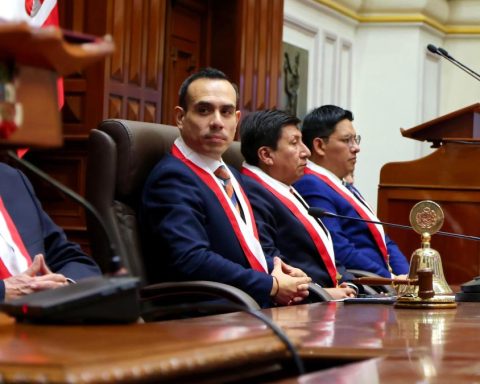AND
In 1959, Célestin Freinet’s book, Les dits de Mathieu: A modern pedagogy of bon sens (Delachaux et Niestlé publishing house, Switzerland). Mateo is the peasant to whom Freinet trusts some parables to philosophize about education based on good sense. Celestin says: Mathieu is, without a doubt, one of those men of good sense who have known how to find, within themselves and around them, reasons to live and hope that are no longer common.
.
In 1994, Madeleine Freinet made a new edition of her father’s work (Editions de Seuil, France), with the same title, confirming that Freinet refers to good sense and not something else. In 1970, the Estela publishing house in Barcelona promoted the Spanish translation of the text with the title Parables for a popular pedagogy (Matthew’s sayings). In one fell swoop the expression good sense disappeared, and the title of the first section was also altered: in the Swiss edition it corresponds to A bon sens pedagogy
and in the Spanish it was like A common sense pedagogy
. Suddenly, the two meanings were confused, leading to misrepresentation. I participated in the error when making a selection of texts published in 1985 by the Pedagogical Library of the Ministry of Public Education (SEP), under the title Freinet, a common sense pedagogy. I take this opportunity, although with great delay, to apologize for the possible disorientation caused. The important thing is to clearly establish Freinet’s opinion in search of good educational sense.
I found that, before Freinet, the Swiss Adolfo Ferrière, in his book The active schoolon at least three occasions speaks of good sense in education. The above will have to be followed up, since Ferrière was a decisive character in Freinet’s pedagogical orientation, as he recognizes. By the way, three centuries in advance, René Descartes dedicates a paragraph to good sense in the first part of the Discourse of the method. Freinet probably read it. Speaking of the great pedagogues, Freinet evokes Montaigne, Rabelais and Rousseau as three authors who did not lack good sense. Complete: “It is up to us… to join your school, find that spark and expand it as much as possible, so that it animates works and lives.” He makes such a pronouncement through the reappearance of Mathieu, in 1967, in the book Work education (Delachaux el Niestlé, Switzerland), published in 1971 as Education through work by the Economic Culture Fund.
But what do we understand by good sense? Freinet himself in Education through work It provides clarifying elements, far from theory and very close to nature and life, to what is simple and deeply human (It is my heart and my sensitivity that I appeal to
confesses). Célestin, proud of his origin, boasts: I react with my good peasant sense
. In the preface, Freinet announces that “ideas of relentless good sense… are coming in this book.” And he spreads them without waste throughout the 300 pages. I will then construct a paragraph with Freinet’s main pronouncements:
“We apply ourselves in our schools to leading our children in the right direction… It is necessary… to recover the use of good sense, that vulgar name for the great and definitive human virtues… I have no more talent than simple loyalty in the service of logical reasoning. and good sense… And I cannot separate myself from nature and life in this: from both I expect the supreme lights and the decisive teachings… I judge events and things with the maximum of good sense that I have been able to preserve, even if I am the only one who dares to do it… Maybe I’m wrong, but I prefer, to those supposed wells of science, the concentration of the old shepherd who, throughout his life, has frequented the same paths, tripping over the same stones and staying away from the same things. same branches, who has almost never spoken except with his beasts and whose only outings have been his trips to the fair, but who has kept his nature and his lucid good sense intact… Blessed are the men of good sense who know how to find some of those paths of light that will one day be found by those who wander along arbitrary paths, without line or end… It is hard work, you know, not to think like others, to take risks along new paths… I give my judgment, my opinion of good sense, as an advice that will be followed by those who deem it useful… I will not feel less satisfied if I have managed, through my common sense reasoning, to guide educators towards the methods of life, and if one day… our children and our grandchildren can better prepare for fulfill your destiny in a school for life, for life. For work! The work is a whole: there can be as much good sense, as much intelligence and useful philosophical speculation in the brain of the man who builds a wall as in that of the scientist who investigates in his laboratory.
Freinet proceeds with good sense to correct the terrible conventional school orientation of his time (essentially, little has changed today). Says: The disorder of which we are victims (in the school of rigidity, mistrust, competition, monotony, fatuity, disinterest, memorization, obedience, fear, inexpression, silence, etc.) only manages to make us appreciate and miss good sense.
. This is why it is proposed and achieved to put the school at the service of the lives and interests of the children; trust them, listen to them in your assembly; give them the word through free text, printing and school exchange; seek their autonomy and self-esteem; bring them happiness; carry out cooperative, dignifying, diverse, creative, challenging and joyful work with them, promoting simplicity, responsibility, respect, rigor, love and, of course, good sense.
Let’s raise the sights of education!
* Professor at UNAM
















